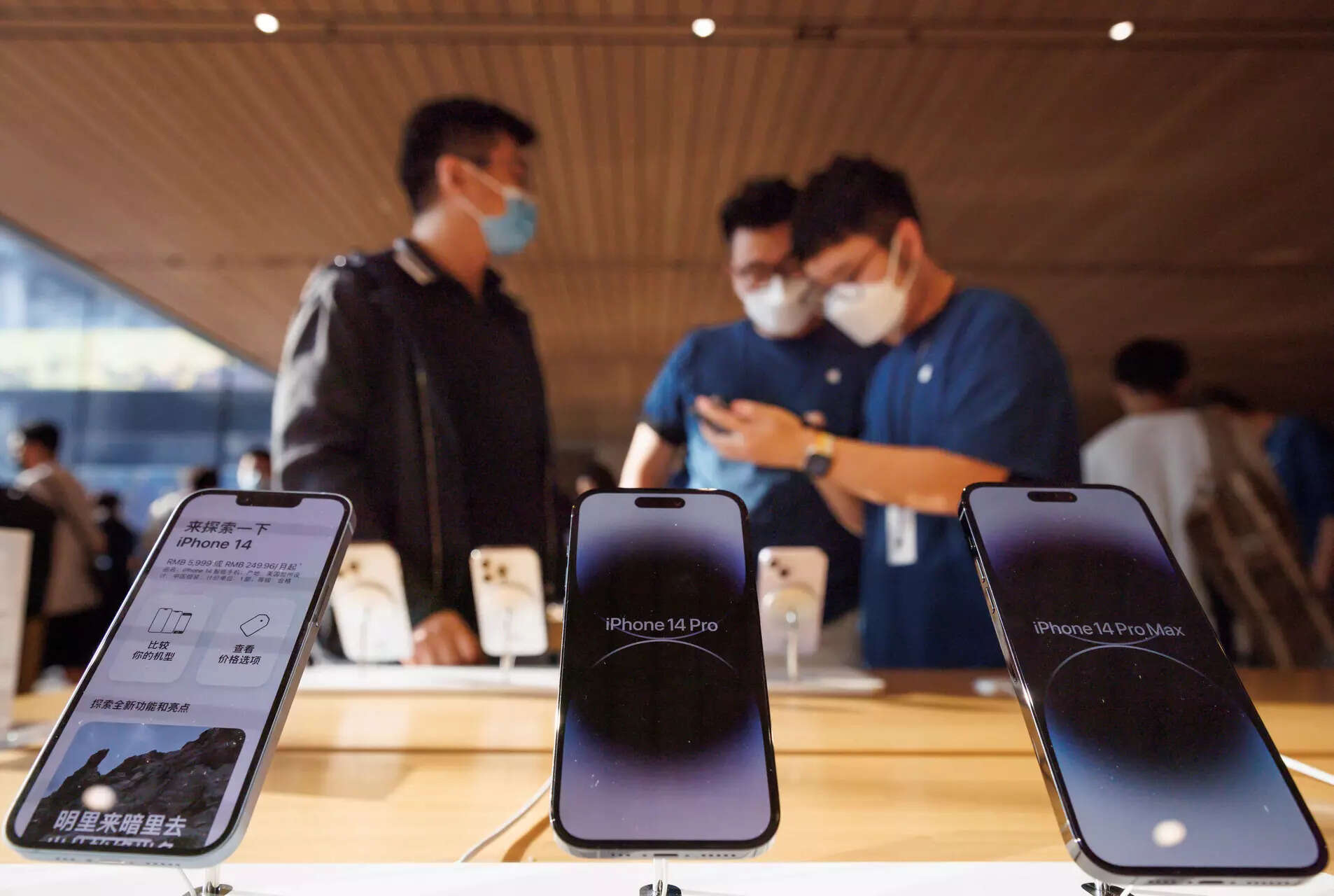Amidst tensions between Beijing and Washington, China has decided to expand its ban on using iPhones in sensitive departments to government-backed agencies and state companies.
Sources familiar with the matter told Bloomberg that several agencies have already instructed their staff not to bring iPhones to work, confirming an earlier report by the Wall Street Journal. The Chinese government plans to further extend this restriction to a number of state-owned enterprises and other government-controlled organisations, revealed the sources.
As of now, there is no formal or written injunction in place, so it is uncertain how many companies or agencies will eventually adopt restrictions. Some firms could choose to prohibit Apple devices in the workplace, while others may instruct their staff to avoid their use altogether.
The Chinese government has been working for years to eliminate the use of foreign technology in sensitive areas. This effort coincides with the country’s attempt to reduce its dependence on foreign software and circuitry, especially in America.
The move could pose a significant challenge for Apple as the company heavily relies on China for revenue growth and manufacturing. China has been one of Apple’s largest markets, amounting to one-fifth of the company’s total revenue in the previous year, and the iPhone sales in China exceeded those in the United States in the last quarter.
The shares of Apple dropped by 2.9 per cent on Thursday due to reports that China intends to expand the ban on iPhones for use in government-backed agencies and companies. Apple experienced its largest daily decline in over a month. The company lost approximately $200 billion in just two days, and its stock is currently performing worse than ever before in recent times.
Huawei could be the reason behind iPhone ban in China
Bank of America analysts noted in a report that the possibility of a ban on iPhones in the US coincides with the launch of a new high-end smartphone by Chinese manufacturer Huawei, the Mate 60 Pro.
The US government has opened an investigation into Huawei’s latest smartphone, which was recently launched.
This comes after the smartphone was found to be equipped with an advanced 7nm chip produced by Chinese chipmaker SMIC. Despite the US’ restrictions on exporting advanced chip-making machinery to China, the chip offers connectivity speeds that are comparable to those of other 5G-enabled chipsets, while the curb should have pushed China’s chip industry back a decade down the line.
National Security Adviser Jake Sullivan has stated that the US requires further information about the new chip’s nature and composition to determine if the parties involved have evaded restrictions on the export of semiconductors.
The timing of the ban is seen as “interesting” by the analysts.
Sources familiar with the matter told Bloomberg that several agencies have already instructed their staff not to bring iPhones to work, confirming an earlier report by the Wall Street Journal. The Chinese government plans to further extend this restriction to a number of state-owned enterprises and other government-controlled organisations, revealed the sources.
As of now, there is no formal or written injunction in place, so it is uncertain how many companies or agencies will eventually adopt restrictions. Some firms could choose to prohibit Apple devices in the workplace, while others may instruct their staff to avoid their use altogether.
The Chinese government has been working for years to eliminate the use of foreign technology in sensitive areas. This effort coincides with the country’s attempt to reduce its dependence on foreign software and circuitry, especially in America.
The move could pose a significant challenge for Apple as the company heavily relies on China for revenue growth and manufacturing. China has been one of Apple’s largest markets, amounting to one-fifth of the company’s total revenue in the previous year, and the iPhone sales in China exceeded those in the United States in the last quarter.
The shares of Apple dropped by 2.9 per cent on Thursday due to reports that China intends to expand the ban on iPhones for use in government-backed agencies and companies. Apple experienced its largest daily decline in over a month. The company lost approximately $200 billion in just two days, and its stock is currently performing worse than ever before in recent times.
Huawei could be the reason behind iPhone ban in China
Bank of America analysts noted in a report that the possibility of a ban on iPhones in the US coincides with the launch of a new high-end smartphone by Chinese manufacturer Huawei, the Mate 60 Pro.
The US government has opened an investigation into Huawei’s latest smartphone, which was recently launched.
This comes after the smartphone was found to be equipped with an advanced 7nm chip produced by Chinese chipmaker SMIC. Despite the US’ restrictions on exporting advanced chip-making machinery to China, the chip offers connectivity speeds that are comparable to those of other 5G-enabled chipsets, while the curb should have pushed China’s chip industry back a decade down the line.
National Security Adviser Jake Sullivan has stated that the US requires further information about the new chip’s nature and composition to determine if the parties involved have evaded restrictions on the export of semiconductors.
The timing of the ban is seen as “interesting” by the analysts.
Denial of responsibility! Yours Headline is an automatic aggregator of the all world’s media. In each content, the hyperlink to the primary source is specified. All trademarks belong to their rightful owners, all materials to their authors. If you are the owner of the content and do not want us to publish your materials, please contact us by email – [email protected]. The content will be deleted within 24 hours.

